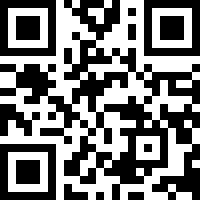In order to understand how counterfeit drugs enter the supply chain, it’s important to know the basics of what the supply chain is. Today we’ll be talking about the first step in the process – the pharmaceutical manufacturers.
A pharmaceutical manufacturer makes drugs for the medical market. These companies often produce many different kinds of medications but do not distribute directly to the general population. That job falls on the pharmacies, clinics, doctors’ offices, and others, who receive their supply from distribution companies.
Some manufacturers make brand-name drugs, some make generic versions, and some make both. In general, the brand manufacturers are the companies that research and develop new drugs and treatments, while the generic manufacturers make versions of drugs when the original patents expire (in the United States these patents last for twenty years).
While manufacturing companies do not directly sell their drugs to patients or even pharmacies, there are some exceptions. There are also certain programs and agencies who purchase directly from the manufacturing companies, such as various AIDS Drug Assistance Programs, Vaccines for Children, and the Veterans Administration. Drugs are almost never sold directly to consumers, however. Manufacturing companies can also create and manage programs that offer subsidized medication to low-income patients.
Manufacturers are also responsible in part for the safety of the supply chain. In addition to producing packaging that has lists of ingredients, side effects, and other important information, boxes and bottles need to have tracking information that fulfills local drug tracking laws. The more desirable, potent, or habit-forming a drug is, the more regulated it tends to be. Different governments have different protocols for labeling and tracking, and the manufacturing companies have to comply with each set of laws if they want their product to be sold in those markets.
In this day and age, the pharmaceutical manufacturing industry does a lot of work in marketing drugs to consumers. Whether it’s running commercials on TV, commissioning and even performing studies, or forging relationships with doctors, medicine has become a consumer industry. Thanks to these efforts, demands for brand-name drugs have increased over the years.
As of 2016, the largest pharmaceutical manufacturers in the world are:
- Bayer ($25.27 billion) – Makers of Aspirin, Xarelto, and Eylea. Bayer is a German company that has been in business for almost 150 years and specializes in a variety of pharmaceutical products.
- AbbVie ($25.56 billion) – Makers of Humira, Imbruvica, Lupron, Veikira, and Synthroid. AbbVie is an American company that specializes in small molecule drugs.
- Gilead ($30.39 billion) – Makers of Vemlidy. Gilead is an American company that specializes in antiviral drugs that combat HIV and Hepatitis B and C.
- GlaxoSmithKline ($34.79 billion) – Makers of Trivicay and Triumeq. GSK is a British company specializing in vaccines.
- Sanofi ($36.57 billion) – Makers of Soliqua and Lantus. Sanofi is a French company that specializes in developing therapies for global health issues.
- Merck & Co. ($39.8 billion) – Makers of Keytruda. Merck is an American company specializing in cancer fighting drugs.
- Novartis ($48.52 billion) – Makers of Cosentyx. Novartis is a Swiss company that recently split into two pharmaceutical units with one specializing in oncology and the other specializing in more generalized drugs and treatments.
- Roche ($50.11 billion) – Makers of Herceptin, Kadcyla, and Perjeta. Roche is a Swiss company that specializes in treatments for debilitating conditions.
- Pfizer ($52.82 billion) – Makers of Ibrance, Lyrica, Eliquis, Viagra, and Celebrex. Pfizer is an American company that focuses its efforts on multiple areas of medicine.
- Johnson & Johnson ($71.98 billion) – Makers of almost everything else. Johnson & Johnson is an American company which has many different divisions for the research and production of treatments and drugs.
While these are the largest and most profitable brand-name producers in the world, there are hundreds of others large enough to be publicly traded.
Pharmaceutical manufacturers are the first node in the drug supply chain. While large name-brand companies produce medicines for a global market, many other companies also produce generic versions of those drugs. As we’ve seen from just the largest of hundreds, if not thousands, of manufacturing companies, pharmaceuticals comprise over $1 trillion of the world’s economy in a year. And while we may trust larger companies to follow the law, there are many unsavory people and organizations that want to get a piece of that action.
IDLogic is a blockchain-powered technology company seeking to protect drug supply chains and keep people around the world from receiving counterfeit drugs.


